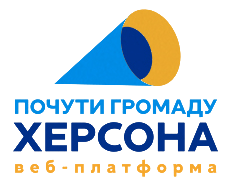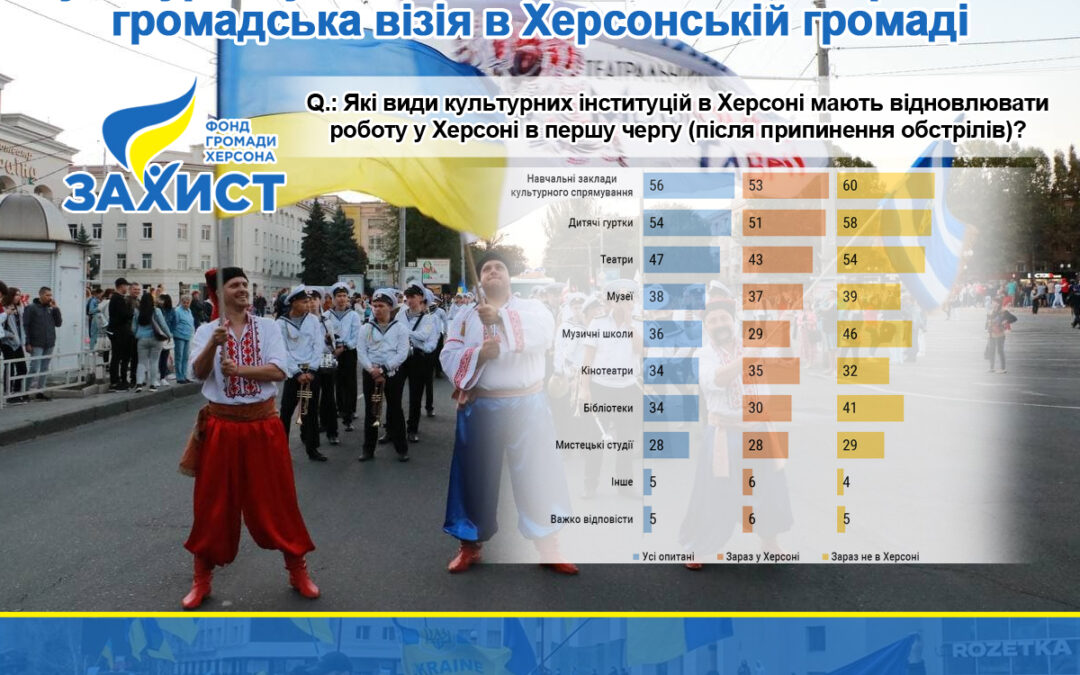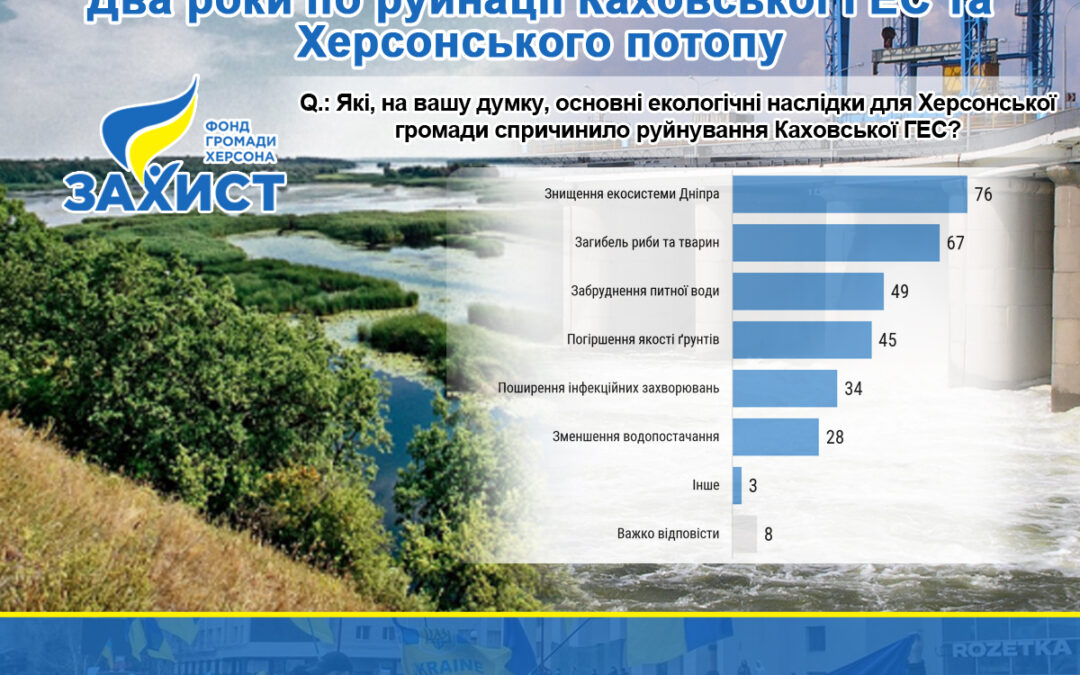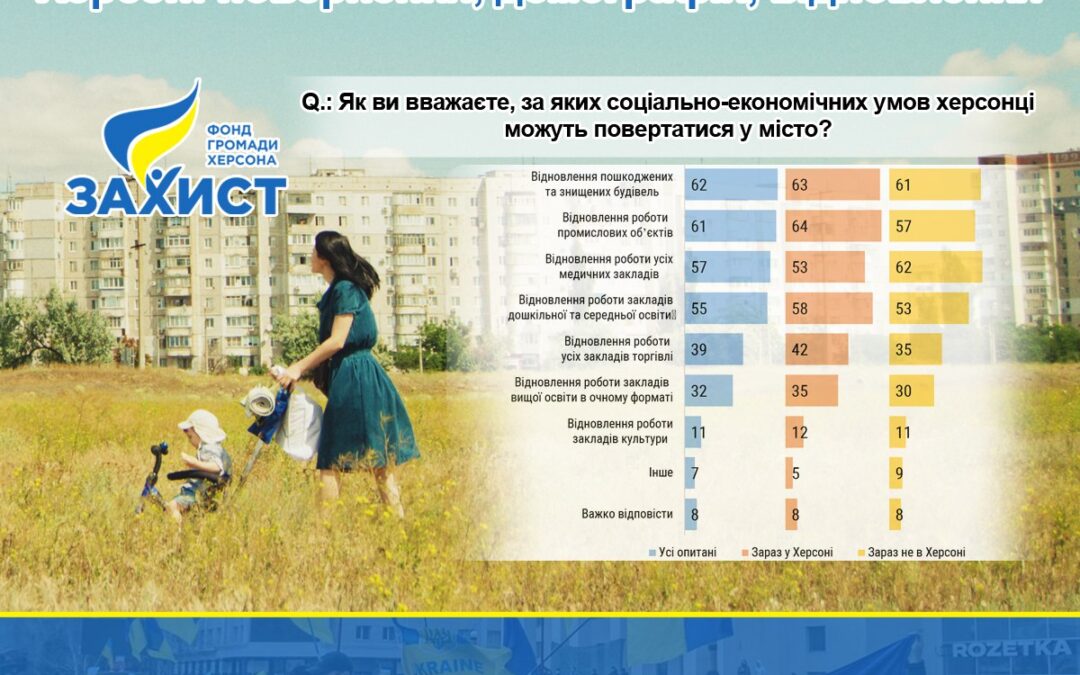A report on a sociological online survey in March 2024.
Methodology: an online survey using an interactive structured questionnaire, which relevant link was sent to potential respondents from the database (online research panel of the Kherson community). The sample is based on demographic indicators as of January 1, 2022. Given the indicators, the research margin of error does not exceed 5%, with a probability of 0.95. The sample includes Kherson residents both currently residing within the community, and those who left Kherson after February 24, 2022, to other oblasts of Ukraine or abroad. Currently, there is no official data on Kherson residents’ migration, so it is not possible to assess the given respondent sample representativity. However, there are reasons to believe that the ratio of respondents still residing within the community presented is greater than the de facto one, which may affect the research results.
Research objective: assessment of the situation and development prospects for higher education in Kherson.
Sample size: 400 respondents.
Field stage period: March 20 – April 1, 2024.
Research client: Zakhyst Kherson Community Foundation.
Research prepared by:Oleh Sinaiuk (New Image Marketing Group LLP, Director), Mykola Homaniuk (Kherson regional branch of the Sociological Association of Ukraine, Chairman), Ihor Danylenko (New Image Marketing Group LLP, Analyst).
Key Outputs
1.Higher education for almost all Kherson residents (97%) is a crucial prerequisite for the future successful development of the city. However, only half of them are aware of the way the Kherson higher education institutions operate given the current conditions. 9% even believe that these are closed during the war.
2.The idea of optimization (reducing the number) of higher education institutions is not popular among Kherson residents. It is supported by only 13% of respondents. Although the share of those considering that the higher educational system in Kherson should remain just as it was before the war, decreased from 59% to 49% in the period from October 2023 to April 2024.
3.For the future reconstruction of Kherson and the oblast, construction (82%) and agricultural (74%) qualifications should become priorities for Kherson universities. Thus, the respondents could assess the areas in the oblast that suffered the most damage from the invaders. Therefore, technical and agricultural higher education institutions require additional support, according to a quarter of the respondents.
4.Higher education remains highly demanded among the population. Half of the respondents (51%) know people who plan to study at a higher education institution. 33% of the latter are also considering Kherson universities.
Kherson State University tops the list of universities that are seen as potential places of study. 11% are thinking about education abroad.
5.37% of respondents believe that applicants from Kherson oblast should have preferences when applying to higher education institutions, but only if they choose Kherson universities. Kherson residents also believe that the children of veterans (30%) and the veterans themselves (29%) should have preferences. This could be free education (77%) and admission to higher education institutions under a simplified procedure (54%). However, an important condition here is the obligation to work within a specialty obtained.
6.Payment is the most important condition to people. The most important thing for 47% is to study at a state-funded place, and for another 41% – an affordable amount paid for education on a contractual basis.
7.The top three advantages of Kherson higher education institutions are the location (54%), the high quality of education (36%), and the availability of distance learning (28%). The Kherson residents here have somehow inert thinking as all Kherson higher education institutionscurrently operate are aware of this.
8. The most popular Kherson rector was Oleksandr Spivakovsky, the rector of Kherson State University, as 31% of all respondents heard of him. In this rating, he is followed by Yuriy Kyrylov (7%), the rector of Kherson State Agrarian and Economic University, and Yuriy Bardachov (5%), the former rector of Kherson National Technical University.








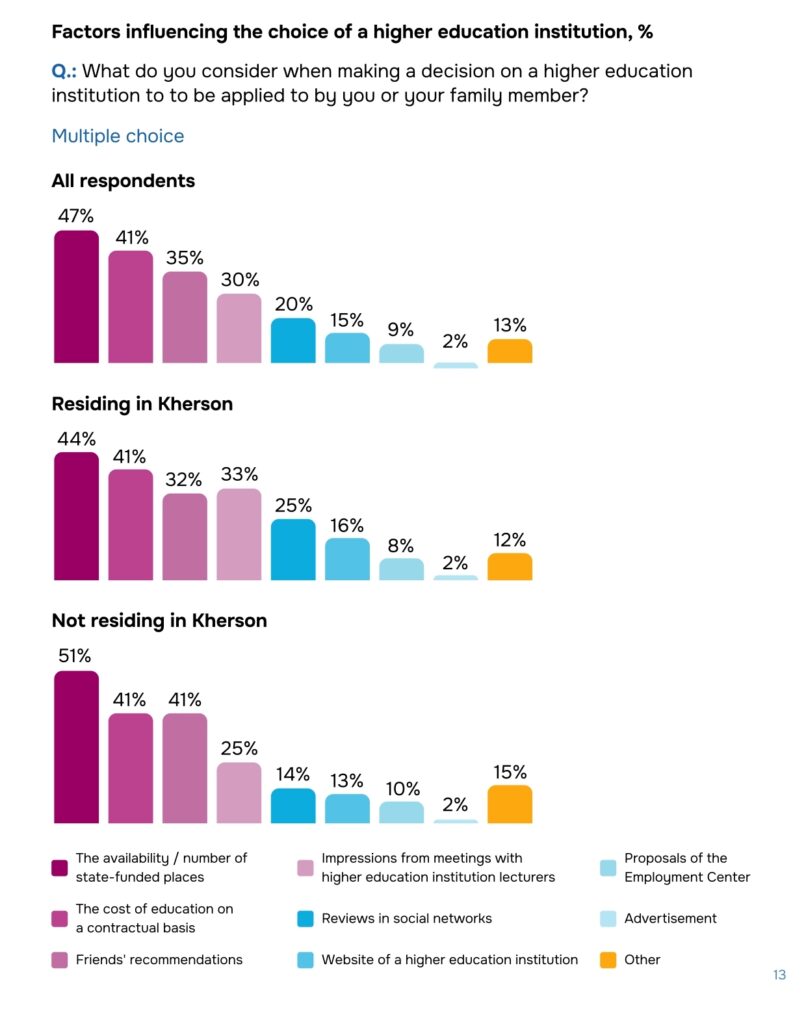



You can read the full report by downloading it or read view it in Ukrainian.
This research was conducted by the Zakhyst Kherson Community Foundation Charitable Organization as a part of its project implemented under the USAID/ENGAGE activity, which is funded by the United States Agency for International Development (USAID) and implemented by Pact. The consents of this research are the sole responsibility of Pact and its implementing partners and do not necessary reflect the views of USAID or the United States Government/
Reproducing and using any part of this product in any format, including graphic and electronic, copying or any other usage is suitable to reference to the sourc/
